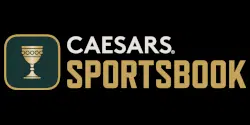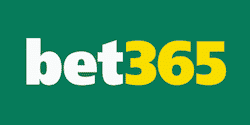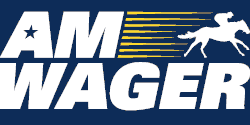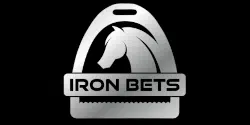Iowa Gambling
Welcome to your complete guide to gambling in Iowa. On this page, we will be discussing the Iowa gambling industry in great detail. We’ll be discussing legal Iowa gambling sites, what’s legal today and what may be legalized in the future as lawmakers consider the future of the industry.
Iowa is generally a gambling-friendly state even if it doesn’t exactly have a reputation as a gaming destination. Land-based casinos and race tracks operate throughout the state, horse racing betting is legal, and several forms of social and charitable gambling are permitted in certain circumstances. Iowa also has a state lottery.
Legal Iowa Gambling Sites











21+ and present in IA. T&Cs Apply. Gambling Problem? Call 1-800-BETS-OFF.
The full list of legal gambling activities in Iowa includes:
- Casinos (in-person)
- Sports Betting (in-person and online)
- Poker (in-person)
- Daily fantasy sports (online DFS and in-person)
- Horse racing betting (online and in-person)
- Lottery (in-person)
- Bingo and charitable gambling (in-person)
- Games of skill (online and in-person, but the legal situation is unclear for online games)
Iowa Online Gambling
Legal online gambling options in Iowa consist of sports betting, daily fantasy sports, and horse racing betting. The legality of skill games played for money online is unclear, which has resulted in some skill gaming sites choosing to operate in the state while others play it safe and opt to stay out.
Online casino games and poker are prohibited in Iowa. The odds of online casinos and poker sites coming to Iowa remain fairly low at this point, but they did get a boost after lawmakers agreed to legalize mobile sports betting.
At the very least, the legalization of sports betting indicates attitudes toward online gambling in Iowa are slowly changing for the better. Lawmakers have toyed with the idea of legalizing online casinos and poker in past years. Those efforts have never made much headway, however, and now the focus is all on sports and daily fantasy.
Iowa Sports Betting
Iowa legalized sports betting in May 2019 with a bill approving in-person and mobile sportsbooks. The bill (SF 617) that led to this change was introduced in April, quickly gained approval in both chambers, and was signed into law by Governor Reynolds the following month.
State law allows state-licensed casinos to apply for licenses to launch retail sportsbooks and online betting for customers 21 or older and located within state lines. The Iowa Racing & Gaming Commission (IRGC) is tasked with drawing up regulations, reviewing licensing applications, and overseeing the industry.
The Iowa sports betting law established a reasonable tax rate of 6.75% and allows each land-based casino to operate up to two individually branded mobile sportsbooks. Overall, we can safely say the law set the stage for a competitive environment that is good for players and the industry alike.
Sports betting at tribal casinos is not addressed by state law, but the operators of some Native American casinos said they plan to pursue sports betting as well. WinnaVegas CEO Mayan Beltran confirmed shortly after the passage of the law that they would voluntarily follow the regulations established by the Iowa Racing & Gaming Commission despite having no obligation to do so.
Iowa Online Sports Betting Sites
Mobile sports betting apps and gambling websites are permitted under Iowa law. State law permits customers to register and bet online from anywhere inside state lines.
Iowa law originally called for customers to register mobile betting accounts in person at casinos, but lawmakers scheduled that provision to sunset on January 1st, 2021. Now, customers may download mobile betting applications or visit the official website of any licensed sportsbook to sign up and bet online.
Licensed Iowa Sports Betting Apps:
- BetMGM Iowa
- BetRivers Iowa
- FanDuel Iowa
- DraftKings Iowa
- Hard Rock Sportsbook Iowa
- Q Sportsbook
- Caesars Sportsbook
Bally’s Corporation announced in November 2020 that BallyBet will come to Iowa in partnership with Elite Casino Resorts. The partnership agreement grants Bally’s market access through the sports betting license held by Grand Falls Casino & Golf Resort.
Read more:
Iowa Casinos
Iowa began down the path of casino gambling in 1989 after the legislature enacted a bill allowing riverboat gambling to kick off the state’s gambling industry. The state negotiated tribal gaming compacts with local Native American groups in 1992, and the first tribal casinos opened later that year.
Racetracks got in on the action in 1994 after legislation was passed allowing qualified tracks to install slot machines in an effort to boost the racing industry. The legislature added on to that in 2005 to allow table games at tracks to effectively authorize the first racinos. The state again amended its gambling laws in 2007, this time removing the requirement that casinos be located above water.
Today, Iowa has a bustling gambling industry consisting of 19 state-licensed casinos and racetrack casinos (racinos) that combine to create a $1.5. billion industry that generates more than $400 million annually for charitable causes and state funding.
State law requires all commercial casinos to donate a portion of their revenue to local charities. Each casino has an agreement in place with a qualified sponsoring organization (QSO) that is designated to receive a portion of each casino’s revenue. Currently, commercial casinos contribute roughly $40 million per year to charitable organizations.
The state is also home to four tribal casinos that are regulated by Native American regulators. In all, there are 23 land-based casinos in Iowa.
List of Brick and Mortar Casinos in Iowa
- 18 commercial casinos
- 1 commercial racino (racetrack-casino)
- 4 tribal casinos
- Ameristar Council Bluffs
- Casino Queen Marquette
- Catfish Bend Casino
- Diamond Jo Dubuque
- Diamond Jo Worth
- Grand Falls Casino & Golf Resort
- Hard Rock Casino & Hotel
- Harrah’s Council Bluffs
- Horseshoe Casino Council Bluffs
- Isle Casino Hotel Waterloo
- Isle of Capri Bettendorf
- Lakeside Hotel & Casino
- Q Casino and Hotel
- Rhythm City Casino Resort
- Riverside Casino & Golf Resort
- Wild Rose Clinton
- Wild Rose Emmetsburg
- Wild Rose Jefferson
- Prairie Meadows Casino & Hotel
- Blackbird Bend Casino
- Prairie Flower Casino
- WinnaVegas Casino Resort
- Meskwaki Bingo Casino Hotel
Iowa Poker
Poker is legal in Iowa at authorized land-based locations. There are generally two ways to play poker legally in Iowa. One is to visit a licensed casino where you can play a wide variety of games at a wide range of stakes. For serious poker players and those looking for action, this is by far your best bet.
Iowa also permits small-stakes social poker games if they meet a number of requirements such as having a social gambling license, the participants having a social relationship that extends beyond gambling, the game is not run for a profit, and participants do not win or lose more than $200 in any 24-hour period.
Poker Rooms in Iowa
Catfish Bend Poker Room
- 1-6 tables depending on demand
- 10% rake (max $4)
- Wide variety of cash games & tournaments
- Closed Mondays/Tuesdays
Diamond Jo Worth Poker Room
- 7 tables
- Limit and no-limit Holdem, Omaha and 7 Card Stud
- Multiple guaranteed prize pool tournaments each week
Grand Falls Poker Room
- 8 tables
- Limit up to $3/$6; no limit up to $2/$5
- Frequent tournaments
- Bad beat jackpot
Horseshoe Council Bluffs Poker Room
- 18 tables
- Texas Holdem and Omaha
- Limit up to $10/$20; no limit up to $2/$5
- Daily tournaments
Riverside Casino Poker Room
- 10 tables
- Holdem, Omaha, Omaha H/L, Big O, 7 Card Stud
- Limit starting at $3/$6; no limit up to $2/$5
- Multiple tournaments each week
Prairie Meadows Poker Room
- 9 tables
- Bad beat jackpot
- Multiple tournaments each week
Iowa Daily Fantasy Sports
Daily fantasy sports (DFS) are legal in Iowa, but this wasn’t always the case. Up until 2019, state gaming laws were interpreted as prohibiting fantasy sites such as FanDuel and DraftKings from doing business inside Iowa.
That changed in mid-2019 with the passage of the same law that also legalized traditional sports betting. The passage of that law finally removed Iowa from the ever-shrinking list of holdout states that still restrict online fantasy contests.
Under the new law, operators of daily fantasy sites must be licensed and adhere to a standard set of regulations, such as enforcing a minimum age of 21 to play, prohibiting the employees of fantasy sites from participating in their own contests, keeping players’ funds in a segregated bank account for safekeeping and other rules of the sort designed for consumer protection.
Licensed Iowa DFS Sites
The Iowa Racing & Gaming Commission is responsible for issuing DFS licenses and should make its first determinations soon. With a low licensing fee and sensible regulations, we anticipate most established fantasy sites to apply for licenses.
Some of the major DFS sites likely to open their doors to Iowa in the near future include:
- DraftKings
- FanDuel
Iowa Horse Racing Betting
In-person and online racing betting are both legal in Iowa. Racing betting was first legalized in Iowa with the passage of the Pari-Mutuel Wagering Act in 1983, which also created the state’s Racing & Gaming Commission.
Lawmakers have since bolstered the industry’s staying power with additional legislation. Wagering on races held elsewhere via simulcasting was legalized in 1989, gambling games at race tracks were authorized in 1994, and legislation allowing advance deposit wagering (online betting) was passed in 2011.
Today, Iowa is home to a modest racing industry overall, with just a single horse track and one greyhound track in operation, but licensed racing betting sites may be accessed to bring a world of racing to your mobile device or PC.
Read more:
Legal Horse Racing Betting Sites in IA
List of Race Tracks in IA
- Prairie Meadows Racetrack
Iowa Off-Track Betting Locations
Off-track betting (OTB) is legal in Iowa at casinos whether or not they hold live races. In the past, the only place to bet on horse races held in other parts of the country was to visit one of the state’s licensed race tracks.
The Iowa legislature changed that in 2014 to allow all commercial casinos to offer OTB. Tribal casinos are also able to offer OTB services under the federal Indian Gaming Regulatory Act. Now, a handful of casinos will let you place parimutuel wagers on races held around the US.
- Wild Rose Clinton OTB
- Prairie Meadows OTB
Iowa Esports Betting
Iowa sportsbooks and betting sites are not allowed to accept wagers on esports events. Originally, it was unclear if state sports betting law included esports wagering, but the state’s stance on the issue was clarified during a June 2020 Iowa Racing and Gaming Commission meeting.
During the meeting, the IRGC considered and denied a request from the Iowa Gaming Association to add esports to the menu of sports upon which wagering is allowed. The IRGC consulted with the Attorney General on the question of esports, and both came to the conclusion that the law would need to be amended to permit esports betting.
The Iowa Gaming Association, however, is confident that it can petition the legislature to pass a minor amendment that would authorize esports betting.
Iowa Lottery
The Iowa Lottery was established in 1985 and has raised billions to date for various state programs. Some lawmakers have expressed interest in authorizing online lottery ticket sales, but nothing has come of those efforts to date. Currently, lottery tickets may only be purchased in person at authorized retailers.
An IA Lottery mobile app was released in 2017 and allows players to scan tickets to check for winners, enter losing tickets into Play It Again promotions, and find the nearest authorized retailer. Although the app does not support actual ticket sales, the IA Lottery will be well-prepared should lawmakers revisit the issue once again.
Revenue raised by the IA Lottery is earmarked for three main causes: The Iowa Veterans Trust Fun, the Vision Iowa Program, and the state’s General Fund.
Iowa Lottery Games
- Powerball: Powerball is the international king of lotteries, home to the biggest jackpots in the world, and a maker of billionaires. Many states participate in Powerball, and all those tickets sold across the country support jackpots that have, at times, ballooned north of a billion dollars.
- Mega Millions: Mega Millions launched in 1996 and now reigns as the biggest competitor to Powerball. This one, too, has created new billionaires with jackpots reaching, at times, into 10-figure territory. Mega Millions is almost identical to Powerball other than drawings being held on different days of the week.
- Lotto America: Lotto America is another multi-state game that functions sort of like Powerball and Mega Millions, but with smaller jackpots and much better odds.
- Lucky for Life: The creators of Lucky for Life cleverly took what is fundamentally a standard lottery game and changed the way payouts are structured to make it a very tempting game. The top prize in Lucky for Life is to receive $1,000 a day for life and the second prize is $25,000 a day for life. Winners can also take a lump sum payout should they wish.
- Pick 3: Iowa’s own Pick 3 launched in 1998 as a simple twice-daily drawing game in which players pick three numbers from a range of 0-9. A range of prize levels offer payouts for matching the numbers in any order, in that exact order or simply matching a pair of numbers. Win up to $3,000.
- Pick 4: Another local game similar to Pick 3, except you choose four numbers from a range of 0-9. Numerous prize levels with a top prize of $30,000. This one is also drawn twice a day.
- InstaPlay: The Iowa Lottery dubs these “scratchless scratch tickets” because you purchase at the terminal and see instantly if you’ve won. It feels a lot like buying an entry to a drawing, except you don’t actually have to wait for a drawing. Numerous game types are available, including a progressive jackpot game.
- Pull-tabs: Pull-tabs work a lot like scratch-off games, except you pull a tab to reveal the symbols underneath. You can purchase pull tabs from lottery vending machines at convenience stores, restaurants, and bars.
- Scratch Games: Instant win scratch-off games are a lottery stable, and you’ll always find at least a couple dozen on offer at any time. Ticket prices range from as little as $1 to as much as $30, with prizes topping out at $300,000.
Iowa Skill Games
Games of skill are regulated in Iowa by any one of a number of laws depending on how those games are operated and who operates them. The laws in this area can get fairly complex, but the main thing for players to know is there are a variety of ways in which games of skill may be played legally in Iowa.
Skill-based amusement games such as those found in Chuck-E-Cheese are considered “amusement concessions” and are regulated by 99B.31 of the Iowa Code. These games offer non-cash prizes that may not be valued at more than $100. Some Iowa lawmakers have considered amending the code to raise the maximum value to $950 in order to attract bigger chains such as Dave & Buster’s.
Charitable organizations that wish to offer carnival-style games of skill must be licensed in the same manner as organizations that wish to offer bingo or other gambling games.
Iowa tends to employ a strict definition of “skill” when it comes to determining whether a game is legal under existing law or if it is regulated as an actual gambling game.
The best example of this strict interpretation can be found in Banilla Games v. Iowa Department of Inspections and Appeals from 2018. That case involved a manufacturer of gaming machines designed to look like slots but altered to be based on skill.
The manufacturer wanted them to be regulated as skill games which would have allowed them to be placed in locations such as laundromats and convenience stores. Otherwise, the games would have been subject to state gambling laws which restrict such games to locations holding liquor licenses.
These games can be found in numerous states and pretty much always operate in a legal grey area. They look like slots and people tend to play them as if they are slots, but technically they have a skill element.
The Iowa Supreme Court, however, determined the games meet the state’s definition of gambling. The Supreme Court found that even when players adopted a perfect strategy in those games, the machines only achieved a theoretical payout rate of 98%. This was enough to classify the machines as gambling games despite the skill element.
When it comes to betting on your own matches as a competitor, Iowa law seems to allow that as a form of skill-based gaming similar to competing in a golf tournament with prizes. However, this is not entirely clear, and some skill gaming sites restrict customers from Iowa.
Strategy gaming websites also operate in Iowa. The largest of these is WorldWinner.com, which runs competitive versions of popular games such as Bejeweled, Scrabble, Angry Birds, and so on.
Skill Gaming Websites in Iowa:
- WorldWinner.com (strategy gaming)
- GamerSaloon.com (eSports)
Iowa Electronic Markets
The Iowa Electronic Markets (IEM) is an online futures trading market that allows participants to wager on the outcomes of upcoming events. The IEM works sort of like a betting site, but rather than betting against the house, players trade contracts with one another that expire at either $1 or $0 depending on the outcome of the future event.
For example, players trading contracts on the outcome of the next Presidential election may buy and sell contracts for a Republican win or contracts for a Democrat win. If players generally see both candidates as evenly-matched, contracts for each would be traded back and forth at around $0.50 each.
After the election, the contracts for the winning candidate would be valued at $1.00, while contracts for the losing candidate would expire worthless. Thus, as one candidate looks increasingly likely to win the presidency, shares for that candidate rise in value based on market demand. The inverse happens to shares for the candidate that appears to be losing.
IEM was established in 1988 by the University of Iowa as a research and education tool for students and faculty but accepts customers from around the world. This type of thing would normally be illegal, but IEM has received no-action letters from the Commodity Futures Trading Commission owing to its educational purposes and lack of profit-seeking.
Social Gambling in Iowa
One way to get your poker fix in Iowa is through a local home game. Most states allow for friendly wagers or weekly poker games, and Iowa is one of those states. However, Iowa has carefully crafted its social and charitable gambling laws.
Some of Iowa’s regulations on social gaming are quite colorful compared to other states. For example, “A social relationship must exist beyond that apparent in the gambling situation” or “In any game requiring a dealer or operator, the participant must have the option to…deal or operate the game.” Iowa also limits the amount on which one can win or lose during social gaming to $200 or less in a 24-hour period.
If you do decide to participate in or host a local home game or charity event, make sure to review Iowa’s social gambling regulations to ensure compliance.
Social Gaming History
Interestingly enough, Iowa voters took the initial turn toward the legalization of gambling in response to a high-profile bust of a church charity gambling event back in 1971. The event was held by the Immaculate Conception Catholic Church in North Buena Vista, Iowa, and had been an annual event for over 40 years. All put towards a good cause. The event featured bingo, dice and card games, and beer.
When North Buena Vista’s population swelled from 150 residents to 8,000 visitors in 1971, the states AG had something to say about it. That year, state agents busted up the event by confiscating the gambling paraphernalia and throwing the Reverend in the slammer for running an illegal gambling house.
Iowans were outraged at the idea of the state going after a church picnic so vigorously, and they let their congressmen hear about it. So much so that the Legislature repealed the state ban on betting in 1972. All legalized forms of gambling in Iowa today exist due to this legislative action.
Iowa Gambling Laws
Iowa’s gambling laws are in some ways lenient and in other ways strict. On one hand, the state regulates and authorizes numerous forms of gambling including casinos, sports betting, poker, horse racing and fantasy sports.
On the other hand, Iowa criminal code comes down hard on anything that may even smell like unregulated gambling. Iowa’s tough criminal laws on gambling prohibit just about everything that doesn’t take place inside a casino or that isn’t operated by a licensed provider, aside from certain low-stakes games.
Chapter 725.7 of the Iowa Code provides a wide-ranging definition of gambling. Other than games offered by licensed providers, it is a crime to “participate in a game for any sum of money or other property of any value” and to “make any bet.”
This wide-ranging definition of gambling leaves little wiggle room, and it is the reason daily fantasy sites did not operate anywhere within the state until new legislation was passed in 2019.
While Iowa’s criminal code does not leave much room for casual and social gambling, players within the state have plenty of legal options through casinos and approved online gambling providers.
Iowa Casino Laws
Useful links:
- Iowa Racing and Gaming Commission (IRGC)
- Iowa Gaming Association (IGA)
- Iowa Code Chapter 99F on Gambling Regulation
- Indian Gaming Compacts in Iowa
Gambling at casinos and race tracks is regulated by the Iowa Racing and Gaming Commission (IRGC). The IRGC was first established as the Racing Commission in 1983 with the passage of the Pari-Mutuel Wagering Act dealing with racing betting.
The Excursion Gambling Boat Act was approved in 1989, and numerous county referendums were held thereafter to launch the state’s first full-fledged casinos. The first riverboat casinos opened in 1991, and the duties of the Racing Commission were expanded to include regulating casino gambling. This is when the Racing Commission became the Iowa Racing and Gaming Commission.
All casinos were required to operate on the water up until a new law was passed in 2007 removing that requirement. This gave the industry some much-needed breathing room, and annual commercial casino revenue now hovers around the $1.5 billion mark.
Horse and greyhound tracks entered the gambling business in 1994 after the legislature approved a law allowing them to host slot machines. Additional legislation in 2005 was passed to once again expand the gambling options at race tracks – this time authorizing table games.
The Iowa gambling industry is also unique in that all casinos are required by state law to direct a portion of annual revenue to a qualifying charitable organization. Upwards of $100 million a year is provided to local charities and community projects through this effort, and even counties without casinos receive benefits. Iowa is the only state in the Union with a law of this sort on the books.
Tribal casinos operate in Iowa under gaming compacts negotiated in 1992 as required by the federal Indian Gaming Regulatory Act.
As is the case across the country, tribal groups generally have the authority to offer any form of gambling that is authorized anywhere else in the state. The legalization of sports betting, for example, has opened the door for tribal casinos to also operate their own sportsbooks.
Iowa Sports Betting Laws
Useful links:
In-person and mobile sports betting was legalized in Iowa with the passage of SF 617 in 2019. The bill amended existing state laws regarding gambling to formally authorize sports betting and establish a handful of baseline regulations, such as prohibiting athletes from betting on their own games and setting the minimum age to bet on sports at 21.
Online and mobile sports betting are both allowed under the law. Casinos that obtain sports betting licenses from the IRGC are permitted to operate up to two individually-branded betting websites in partnership with third-party companies that specialize in online gaming. That’s in addition to any in-person sportsbooks operated by each casino.
Key IA Sports Betting Regulations and Info
- Minimum age to bet on sports in Iowa: 21+
- Is mobile betting permitted? Yes, each casino may operate up to two mobile sportsbooks.
- Will tribal casinos open sportsbooks? Yes
- Remote registration: Customers were required to sign up for mobile betting accounts in-person at a casino until January 1st, 2021. That provision expired on the first day of 2021, and now new users may sign up for mobile betting accounts from anywhere in Iowa.
- Types of wagers allowed: Pre-game and in-game wagers allowed
- Is college betting allowed? Yes, but prop bets on in-state college games are prohibited
- Tax rate: Casinos to pay 6.75% state tax on sports betting revenue
- Licensing fees: Casinos to pay $45,000 for sports betting applications and $10,000 annual renewal fee
- Who regulates IA sports betting? Iowa Racing & Gaming Commission
Iowa Poker Law
Useful links:
- Social gambling general requirements (99B.42)
- Social gambling between individuals (99B.45)
- Social gambling in licensed alcohol establishments (99B.43)
Poker is legal in Iowa when it occurs inside a licensed casino or if it is organized as a social game and meets certain requirements.
For private home games hosted between individuals, a game is considered legal if it meets all of the following requirements as specified by 99B.42 and 99B.45 in the Iowa Code:
- All participants have an existing social relationship that extends beyond playing poker
- The game does not take place on any school property
- The game is conducted in a fair and honest manner
- The game must not be run for a profit (i.e. charging fees or a rake)
- No participant wins or loses more than $200 in a 24-hour period
- All players must have the option to take their turn playing as the dealer
Licensed alcohol establishments may also apply for a license to host social poker games under section 99B.43. These licenses cost $150 and include the above restrictions as well as these rules:
- The liquor license holder and employees may not act as the sponsor, banker, or cashier for the game except as a participant while playing under the same rules as all the other players
- No one under 21 may participate
Iowa Daily Fantasy Sports Law
Useful links:
Iowa legalized daily fantasy and actual sports betting in one shot with SF 617 in 2019. The bill made the biggest waves for legalizing sports betting, but it also finally cleared the way for daily fantasy sports.
Under SF 617, fantasy sports operators such as FanDuel and DraftKings must apply for licenses from the Iowa Racing and Gaming Commission before offering their services in Iowa. Fantasy sports licenses are issued at a cost of $5,000 and require licensees to comply with the following requirements:
- Prevent employees from participating in fantasy contests hosted by their own gaming sites
- Ensure all customers are at least 21 years of age
- Prevent athletes, coaches, and other sporting officials from participating in contests upon which they could have an influence in the real world
- Publish on their websites the phone numbers of problem gambling resources
- Publish the number of entrants allowed in each contest and prevent customers from submitting more than the maximum number of entries specified by the contest’s ruleset (i.e. if a contest says players may submit up to five lineups, the fantasy site must ensure players are prevented from submitting more than five lineups)
- Keep customer funds segregated from the daily operational funds of the fantasy operator
- Submit to an annual audit
- Pay an annual $1,000 license renewal fee
Iowa Horse Racing Laws
Useful links:
- Iowa Pari-Mutuel Wagering Act
- Racing Administrative Rules
- Iowa Quarter Horse Racing Association
- Iowa Harness Horseman’s Association
The Iowa Pari-Mutuel Wagering Act was approved in 1983 to authorize greyhound and horse racing betting. The law now occupies Chapter 99D of the Iowa Code. Advance deposit wagering (online and mobile betting) was legalized in 2011 with additional legislation that further amended Chapter 99D.
The Iowa Racing and Gaming Commission regulates horse racing and pari-mutuel wagering today in addition to casino gambling, daily fantasy sports, and sports betting. The Commission also issues licenses for race tracks and individuals who work in the racing industry.
Iowa Lottery Laws
Useful links:
The Iowa Lottery Authority Act was passed in 1985 to legalize a state lottery and establish a regulatory body to oversee all operations. The first instant win tickets were sold just a few months later, and the first draw game was held the following year.
Under the Iowa Lottery Act, the lottery is required by law to “be operated and managed in a manner that provides continuing entertainment to the public, maximizes revenues, and ensures that the lottery is operated with integrity and dignity and free from political influence.”
Originally, Iowa Law specified that all revenue raised by the lottery would go to an economic development project called the Iowa Plan. Lawmakers later amended the law to earmark revenue for environmental and cultural causes and then amended the law yet again to direct all revenue to the General Fund.
The Iowa Lottery Authority does not operate as a part of the state but rather as a state agency. The law also requires the lottery to be entirely self-funded; no money may be taken from the state to operate the lottery.
Iowa Bingo and Charitable Gambling Law
Useful links:
Charitable organizations are permitted to offer bingo, raffles, gambling and games of skill under 99B of the Iowa Code. Qualifying nonprofit organizations must apply for a Charitable Gambling License and a sales tax permit here before hosting bingo or other gambling games as a fundraising activity.
Organizations that hold a bingo license may host up to three bingo occasions a week but not more than 15 a month. Licensed bingo games must also be staffed by volunteers, and all equipment must be purchased from authorized vendors. Players must be 18 or older to participate.
A bingo game may also be run without a license if it meets all of the following conditions:
- Players are not charged to enter the premises
- Players are not charged to play
- All prizes are donated
- The bingo game is run for recreation, not as a fundraising activity
Iowa Sports Pools
Useful links:
Full-on sports betting is now legal in Iowa, but licensed alcohol establishments may still run sports pools with a $150 social gaming license. Liquor establishments may only run grid-style games, but office workers and the like may run their own bracket contests anywhere other than inside a liquor establishment.
Legal sports pools at bars must meet these conditions:
- Players cannot be charged more than $5 to enter
- The maximum winnings to all players are $500
- All money taken in is awarded back in the form of prizes to players
- Rules of the game must be conspicuously displayed
- The game is conducted in a fair and honest manner
- All participants must be 21 or older
NCAA tournament bracket contests may be held anywhere other than inside a licensed alcohol establishment and must adhere to these rules:
- No participant wins or loses more than $200 in one more or games during any 24-hour period
- 100% of entry fees must be paid out as prizes (the organizer cannot run the bracket for a profit)
- A social relationship must exist between all players
- All participants must be individuals and may not participate as the agent of another person
- The game is conducted in a fair and honest manner
- There is no minimum age to participate
Iowa Skill Games
Useful links:
- Amusement Concessions Law (99B.31)
- Electrical or Mechanical Amusement Devices (99B.53)
Games of skill fall into two broad categories under Iowa law. In one category are mechanical games, such as crane games you might find at an arcade and electronic games that you might find at a tavern.
In the other category are competitive games played against other players for money. Skill gaming websites such as WorldWinner.com and GamerSaloon.com fall under this category. The legality of games in this category is highly uncertain, and not all skill gaming sites operate in Iowa due to the uncertainty.
Games in the first category are considered “amusement concessions” under state law and are regulated by 99B.31 and 99B.53 of the Iowa Code.
Licenses are required to operate amusement concession games at a cost of $50 per year. Such games must also meet certain requirements to be considered legal:
- The rules of the game are prominently posted
- The cost to play is $5 or less
- The machine cannot display prizes that cannot be won
- Cash prizes may not be awarded
- The game may not operate “on a build-up or pyramid” basis
- Living animals cannot be awarded
- The retail value of any one prize does not exceed $100
- The machine operator may not buy prizes back from players
- “Concealed numbers or conversion charts” are not used to play the game
- The operator may not have the ability to choose winners
- The game is conducted in a fair and honest manner
Electronic and mechanical amusement concession games in which the outcome is not determined primarily by skill may only be operated in certain liquor establishments. These games must be registered with the state and are subject to additional regulations found in 99B.53.
Iowa Problem Gambling Resources
Iowa has a couple of state-specific resources open to residents who think they may have a gambling problem. The following resources offer hotlines, advice, referral services, and more for anyone needing help – including friends and family of suspected problem gamblers.



